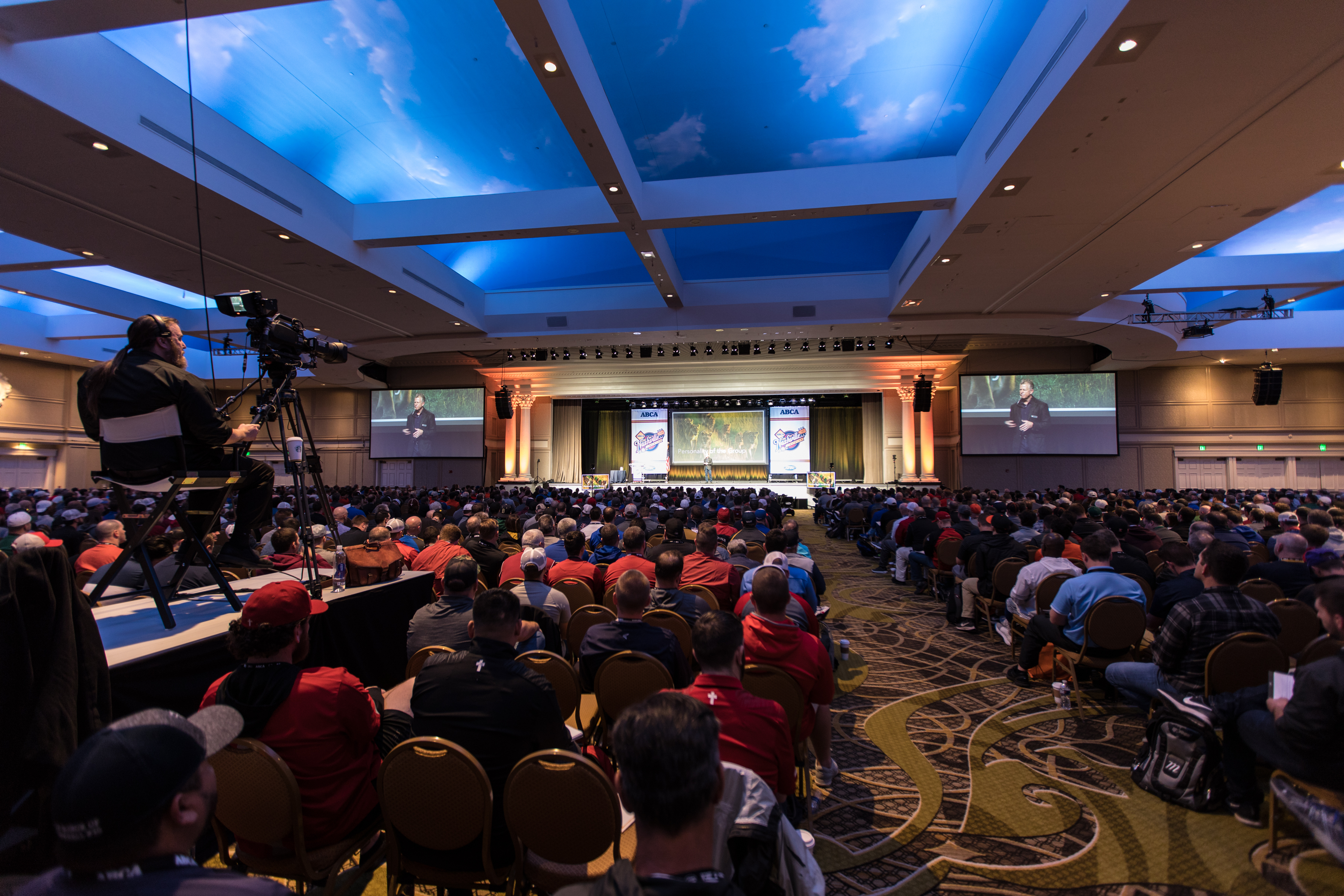
Soon after the ball drops on Times Squre and the New Year is rung in, the signature event for baseball coaches all over the world takes place. During first week of every January, the American Baseball Coaches Association (ABCA) holds their national convention where baseball personnel descend upon rotating cities to learn more about the game so they can help make the game we all know and love even better. This event never disappoints and somehow seems to outdo itself one year to the next.
While all under the same one roof, you’ll find coaches from every single level of the game – more than 7,000 at this year’s edition in Nashville – who combine to create a brotherhood of likeminded people who can’t get enough time talking baseball. It is an environment unlike any other that not only creates a feeling of excitement for the upcoming season but also a great sense of appreciation to be a part of such an incredibly special group.
For most in attendance, myself included, the highlight of every ABCA Convention is the clinic speakers. In a massive room with more the 5,000 seats perfectly lined up and big screens hanging from the ceiling, all eyes lock in on coach after coach who take the main stage to discuss various aspects of the game. From something as specific to how to turn a double play or script the perfect bullpen routine to topics as broad as developing culture within a program or learning how to coach different individual personalities on a team, there is literally something for everyone in attendance.
The ABCA prides itself by having “some of the best coaches in our game” present to its members. It may very well be the greatest honor for those in the organization to be asked to speak; I’ve been fortunate to have done it twice and can honestly say that presenting in this environment to my peers in the game is one of the coolest things I’ve ever done over the course of my career.
But something dawned on me a few weeks ago as I sat in the crowd taking notes, blown away by this year’s lineup of speakers. With every introduction for each coach, no matter the role and no matter the level, it seemed like each guy was “one of the best teachers of the game” or “one of the best pitching coaches in the country” or “one of the best experts on hitting.” And in the industry, on the surface, those descriptions were most deservedly stated.
With all due respect to Vanderbilt’s Head Coach Tim Corbin, who I admire as much as any coach in the game and would have loved to have played for or coached alongside; with all due respect to JT McGuire, a Minor League coach with the Cleveland Indians, who shared more drills in 35 minutes than I ever thought even existed for outfield play; with all due respect to Kerrick Jackson who worked a miracle at Southern University; Buck Showalter who has probably forgotten more about the game than most will ever know; Rick Heller and Matt Hobbs who can use today’s technologies and analytics with hitters and pitchers as well as anybody; and with all due respect to the ABCA who spends months lining up each presenter to make every convention an impactful one; these were NOT the best coaches in our game.
The best coaches in our game were the ones sitting in the crowd. They, collectively, represent the future of our game far better than any one of us who has the privilege of taking the main stage. Without these grass-roots coaches, there are no college All-Americans or MLB All-Stars.
The majority of the coaches in the audience at every ABCA convention doesn’t have anywhere close to the same resources of those presenting. They have less man-power on their coaching staffs; a smaller budget for developmental tools; fields that are literally just fields, not facilities. All of those limitations force those coaches to be more creative in order to make their players and teams better.
Most of the coaches sitting in those seats also don’t have nearly the same talent as those speaking on stage. It’s easy to coach when you have great players. It’s easy to coach when you get to pick your own roster. But most don’t have either luxury, let alone both. Their roster is what it is, and they have to figure out how to develop every single player. And year after year, that’s exactly what they do.
Contrary to popular belief, the mark of a successful coach is not found in a won-loss record. In fact, some of the very best coaches may very well be found on some of the worst teams. Years ago, a wise man once told me that the way a coach should be judged has nothing to do with a season’s outcome, but rather everything to do with the players’ excitement to simply come back to play again the following year. Let that sink in.
Today’s player is tomorrow’s coach. As coaches today, we have the incredible opportunity to give our players such an experience on the diamond so rewarding that they not only want to play year after year, but later, make the decision to join us in the coaching ranks to share their knowledge of and passion for the game with the next generation of players, as we did with them. If we do it right, those players that make up our teams will at some point down the road be sitting alongside of us at future ABCA conventions, not realizing that they are sitting amongst the those who are truly the very best coaches in our game.